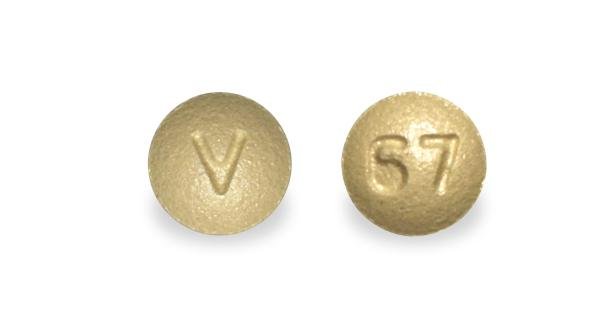Eplerenone and Alcohol/Food Interactions
There are 2 alcohol/food/lifestyle interactions with eplerenone.
Alcohol (Ethanol) Eplerenone
Moderate Drug Interaction
Eplerenone and ethanol (alcohol) may have additive effects in lowering your blood pressure. You may experience headache, dizziness, lightheadedness, fainting, and/or changes in pulse or heart rate. These side effects are most likely to be seen at the beginning of treatment, following a dose increase, or when treatment is restarted after an interruption. Let your doctor know if you develop these symptoms and they do not go away after a few days or they become troublesome. Avoid driving or operating hazardous machinery until you know how the medications affect you, and use caution when getting up from a sitting or lying position. It is important to tell your doctor about all other medications you use, including vitamins and herbs. Do not stop using any medications without first talking to your doctor.
Eplerenone Food/Lifestyle
Moderate Food Interaction
Consumption of grapefruit, grapefruit juice, and supplements that contain grapefruit should be avoided during treatment with eplerenone as they may increase the blood levels and effects of eplerenone. High blood levels of eplerenone can increase the risk of side effects including hyperkalemia (high blood potassium), which in severe cases can lead to kidney failure, muscle paralysis, irregular heart rhythm, and cardiac arrest. You may be more likely to develop hyperkalemia during treatment with eplerenone if you are elderly, dehydrated, or have kidney disease, diabetes, or advanced heart failure. You should seek medical attention if you experience nausea, vomiting, weakness, confusion, tingling of the hands and feet, feelings of heaviness in the legs, a weak pulse, or a slow or irregular heartbeat, as these may be symptoms of hyperkalemia. It is important to tell your doctor about all other medications you use, including vitamins and herbs. Do not stop using any medications without first talking to your doctor.
Switch to professional interaction data
Eplerenone drug interactions
There are 451 drug interactions with eplerenone.
Eplerenone disease interactions
There are 4 disease interactions with eplerenone which include:
More about eplerenone
- eplerenone consumer information
- Check interactions
- Compare alternatives
- Pricing & coupons
- Reviews (15)
- Drug images
- Side effects
- Dosage information
- During pregnancy
- Drug class: aldosterone receptor antagonists
- Breastfeeding
- En español
Related treatment guides
Drug Interaction Classification
| Highly clinically significant. Avoid combinations; the risk of the interaction outweighs the benefit. | |
| Moderately clinically significant. Usually avoid combinations; use it only under special circumstances. | |
| Minimally clinically significant. Minimize risk; assess risk and consider an alternative drug, take steps to circumvent the interaction risk and/or institute a monitoring plan. | |
| No interaction information available. |
See also:
Further information
Always consult your healthcare provider to ensure the information displayed on this page applies to your personal circumstances.


